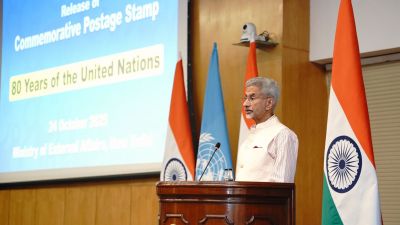Army’s still fighting in Kargil, to win the trust of the people
MAY 14: A year of living together has failed to thaw the chill between the local residents of Kargil and the Army. This is despite the odd...

MAY 14: A year of living together has failed to thaw the chill between the local residents of Kargil and the Army. This is despite the odd cases of romance blossoming between local women and the soldiers.
By and large, the Army still deals with the people of Kargil, Drass and Batalik rather cautiously — even with an undercurrent of suspicion — while residents in turn are feeling the pressure of their presence. Though the Army has moved out of the houses it occupied during the conflict last year, it continues to occupy their land. And villagers are yet to get any compensation for that.
In Batalik, the patience of villagers is wearing thin. “Our land was taken away to make gun positions during the war. We willingly moved out. Even when the Army set up camps and took more area after the war, we were promised adequate compensation but it is still to come through,” laments a villager.
The Army says paying compensation is the job of the civil administration. “In fact, we have been writing to them to make payments to the villagers in lieu of the land we have taken from them,” sources in the Kargil-based 121 Infantry Brigade Group say.
The locals are also upset at the Army’s “preference” for Nepalese porters. “We were looking forward to the Kargil Scouts but the Army is not even taking us as porters. Probably the Army doesn’t trust the locals despite the fact that during the war we not only volunteered but worked without compensation,” says young Muzaffar Ali of Kargil town.
The Army says the Nepalese are more disciplined and used to hard work. In areas where strategic positions are involved, they are far more reliable. However, the distrust between the Army and the locals goes beyond the contentious issues of porters and compensation for the land, says Jafar, a local businessman.
In fact, the residents of Apati had a case of rape registered against a soldier, who was then picked up by the Kargil police. “We had the case investigated thoroughly and found that it was a false allegation. The complaint had not been registered by the girl at all,” says Javed Jilani, Superintendent of Police (SP), Kargil.
The Army hopes that this would remain an isolated incident and such complaints won’t be repeated. But this has not deterred the soldiers from being “friendly” with the local women and at least two such cases have come to light. In one case, though a complaint was made, it was found that both the soldier and the woman had a soft spot for each other. Sources say the soldier had even sought permission of his seniors to marry the woman. But that may not be easy in the atmosphere of mutual suspicion.
Another irritant is the Army not permitting people in villages close to the Line of Control (LoC) to cultivate their land. In one such case near Kaksar, villagers had made a small canal from the Shingo nullah, running close to the LoC, to their village. However, the canal was breached during the intensive shelling last year. But now the villagers do not have the permission to repair the canal.
They say the livelihood of 92 families in Kaksar is being affected by the Army’s unreasonable approach. But the Army has an explanation. “The LoC is not fenced and not demarcated either. Because we occupy it, it’s ours despite it being drawn on paper. Pakistan is a hostile country. It can fire at and kill the villagers while they work in their fields. From their post across the LoC, the land is visible through the naked eye. So it is for the security of the villagers that we are not permitting it as yet,” says an official of the 121 Infantry Brigade.
The Army says it is making a number of efforts to improve relations with the locals. It includes goodwill gestures like running schools, medical camps and even giving food and fodder in some cases. In fact, the Army is also providing water to some villages.





- 01
- 02
- 03
- 04
- 05


























